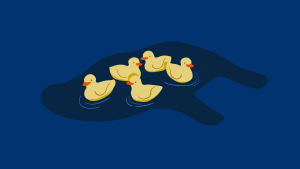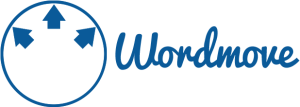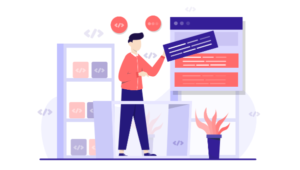If you were offered the choice to create one of two businesses – a web development shop where you do bespoke work for clients, or a start-up where you build your own product and sell it directly to customers – which would you choose?
Both of these business models involve the same activity: building web sites and web applications. Yet they are very different businesses. One is a service business; the other a product business. In this first instalment of a series on start-ups, we’ll look at the differences between these two approaches. Furthermore, we’ll see how they translate into what businesses are all about: making money.
A Matter of Scale
The first key difference between products and services is the question of scaling. If your business, whether it be centered upon products or services, proves so successful that potential customers are knocking down the door, can you scale up to meet that demand and make more and more profit as you do so?
We’ll look at these models in turn. How do you scale up a web design business if you find yourself with more clients than you can handle? The most obvious answer is to hire additional staff. This can be slow, difficult, and risky – it’s easy to hire the wrong person in a rush. Each hire only adds a fixed amount to your capacity to do web design work. Basically, if you have five people doing client work in your business, and you add another, your capacity increases by 20%. You can repeat that every few months, and if you’re growing at breakneck speed, you might just about double your size each year. After all, you don’t want to hire people so fast that you risk compromising the company culture, and hence the quality of your work.
Product businesses are a whole different ballgame. If the number of clients clamoring for you product greatly exceeds your expectations, all you need to serve them is more servers. Servers are much easier to “hire” than people, and they allow you to rapidly scale up from a handful of customers to a very large number of customers with minimal fuss and without having to hire anybody. If the demand is there, it’s not inconceivable foryour business to grow ten or more times bigger every year.
Given that servers are a lot cheaper than people, the chances are that your margins will increase as you scale the business up. For instance, let’s say you have three employees, costing you $40k per year each, and two servers, costing you $5k per year each, which allows you to provide your product to up to 1000 customers (500 per server). Your cost is $130 per customer. If you double the number of customers, and add two more servers, your cost per customer drops to $75. The more customers you have, the lower your cost per customer, and so the higher your margins.
In a product business, if you do decide to make a hire, you won’t do it just to serve more customers, but to provide new capabilities to your business. In a service business, each person you hire adds to your capacity, but in a product business, each person you hire multiplies your capacity.
So the first difference between service businesses and product businesses is one of scale: clearly, product businesses can be easier and more profitable to scale.
Making Money While You Sleep
Running your own web development practice allows you to transmute a fixed number of hours into a fixed amount of money. This alchemy is much more profitable than working a day job, where you’re usually paid a fixed salary for any number of hours, whether you stick to your eight hours a day or do one hundred and ten a week. It seems like a fair deal: the more work you do, the more money you get. The downside is that if you stop working to take a holiday or because of illness, you don’t get paid anything at all.
A product business behaves very differently. As a start-up founder, you won’t get paid much until the product is profitable, but once it is, you don’t need to keep putting more work into it to continue to make money. You’ll make more money if you do continue to improve your product, but even if you don’t, revenues will keep coming in for some time.
This model enables you to experience that most pleasurable of feelings: to wake up, check your sales, and find that while you slept, you made money. These earnings are often referred to as “residual income.” A well-designed start-up is like a money-making machine, which you switch on and keep running until … well, until you decide to stop it. Since it doesn’t need your constant attention and effort, you can enjoy a much more flexible lifestyle on a product business, working when you feel like it (which, at times, may be all week long from dawn to dusk!) rather than when the client deadline demands it.
It also means that if your interests change and you decide to focus on a new business, you’ll be able to do so while being sustained by the income from your first business. Many serial entrepreneurs do just that, often developing their next start-up when their previous one is just beginning to cool down.
So, the second benefit of a product business over a service business is that it allows you to continue to make money even while you’re not actively working on it, which gives you more flexibility with your lifestyle and your business pursuits.
Accruing Value
Another area in which product start-ups and web design businesses are different is in how they accumulate value, or on other words, how the effort that you put into them builds up for the benefit of future clients.
In a web design business, even if you do a fantastic job serving one client, that won’t necessarily translate into better service for your next client. There is some accrual, of course: you and your staff become more skilled, and word of mouth gains you more clients. However, that effect is not direct, guaranteed, or resilient. Even if you’ve just built a fantastic site for client A, you’ll still have to put in more or less the same amount of effort to do the same for client B. And if you don’t, client B’s site may well be sub-standard. You can’t just take the work you did for client A and use it on client B’s site as is.
A product accumulates value much more effectively. Every minute that you spend improving the product applies directly to all your customers, present and future. If you spend a week building a new feature for your product, all your customers can benefit from it. Some customers may not need the feature right away, and so won’t benefit immediately, but if you’ve picked the right feature to build, chances are most of your customers will appreciate and use it. This means you can spend more time making each feature perfect and building something of which you’re truly proud, rather than being always under the pressure of client deadlines.
So, the third benefit of a product business is that it accumulates lasting value much more effectively than a service business.
Hitting the Jackpot!
There are more benefits to running a product business, but we can’t cover all of them in this article. The final one we’ll look at is what I like to call the Jackpot Potential. This is the unlikely but real potential for your business to grow much bigger than you anticipated.
If your web design business takes off in a big way, what’s the maximum amount of money you can expect to make? Given the scaling difficulties of a service business, the amount of money you might make is limited. Of course, if you manage to sustain meteoritic growth for many years, and grow into a multi-billion dollar consulting company, the profits would be huge. But growing a consulting firm to that size requires a very different set of skills than running a small web development shop, and it will take an enormous amount of work, talent, and luck. Even if you have built a successful design practice and you have the opportunity to grow it into something huge, the hardest work is still ahead of you, for many years to come.
When building a product business, you should never count on the jackpot potential. It might happen, but it should not be your only goal, since it’s very unlikely. Building a start-up that grows huge takes a rare mix of genius (in product development), luck (in timing the market) and very hard work. However, these rare elements come into play before the opportunity to grow gigantic arises. If you’ve built a fantastic product and been the first to serve it to the right market, so that it is on the cusp of growing to become a very large business, most of the really hard, really risky work is behind you.
Both service and product businesses can become giant businesses, but the timelines for doing so are very different. Because of the differences in scaling difficulties, it will take you twenty or more years of exceptional luck, talent, and hard work to grow into a large service business. In a product business, although these elements are still required, a handful of years can be enough. Look around you – this is exemplified by, well, most of the great online successes, all of which were only a few years old when they grew to their current size.
The Downsides of a Product Business
With all these advantages, why doesn’t everyone build a product? Why bother with services? Although I myself believe that online products are a better choice, there are some good reasons why one might choose to start (and even pursue in the long term) a service business.
The first consideration is one of risk. Product businesses are much more risky. A web development shop knows that almost every bit of billable work it does will be paid for. A product business has no such guarantee. Until the first client validates your business model by paying you money for your product, there is not a single penny of income. It’s very unlikely for a service business to go bust having not produced any revenues at all, yet this happens to countless start-ups. If your situation in life forces you to be very risk-averse (for example, you have a family, mortgage, and so on to support), a product business may not be the right choice.
Another difficulty of product start-ups is the need for up-front investment. Whether you decide to spend your evenings and weekends on it, or to hire yourself and others full-time (or both), a product start-up requires that you put lots of resources into the creation of the product before having the option to make any profits. If you have no way to raise that initial capital and no free time to invest, then it is impossible to start this kind of business. By contrast, a service business can be sustainable and profitable from day one, since you bill for hours worked, and so it funds itself more naturally.
Another reason to avoid a product start-up is that successful product development is very hard – harder than client work. Web development clients may be fickle and not know what they want, but at least they will try to define the requirements for you, or tell you when the requirements you’ve come up with look right (and whether they’re willing to pay for you to implement them). In a product business, no one can tell you whether you’re building the right feature – or even whether your business model is viable at all. You have to follow your instinct and experience, with no validation until users finally start paying for your product. Product development is never completely “out of the door,” either. The only time you can draw a line under your product and say it’s finished is when you decide to wind down your business.
This never-ending uncertainty is often under-estimated, but it is one of the greatest difficulties in creating a product business. Like any other entrepreneur, you will suffer highs and lows, but with a product start-up you’ll have no validation that it’s worth doing until it succeeds, which demands a lot of optimism and great sense of faith in yourself.
Conclusion
Product businesses have several advantages over service businesses. They’re more scalable, allowing you to grow your business from its humble beginnings to a much larger and more profitable size with relative ease, when compared to the headaches of hiring ever larger numbers of consultants. Product businesses are also a more natural way to produce residual income, which allows a more flexible lifestyle and more freedom in your business pursuits. Finally, they have a better chance of growing beyond your expectations and making you rich!
In the next article in this series, we’ll discuss nine deadly pitfalls of start-ups, and how to avoid them.
Daniel Tenner is a full-time online entrepreneur. He has been involved in several online ventures, worked in a large consultancy in financial services, and started two successful online businesses. His current focus is Woobius, a collaboration tool for the construction industry.




